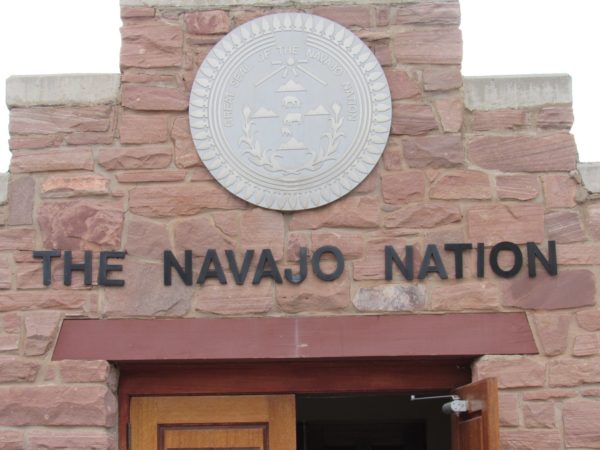
- Details
- By Native News Online Staff
WINDOW ROCK, Ariz. — On Saturday, the Navajo Department of Health, in coordination with the Navajo Epidemiology Center and the Navajo Area Indian Health Service, reported 13 new COVID-19 positive cases for the Navajo Nation and four more deaths. The total number of deaths has reached 460 as of Saturday. Reports indicate that 6,697 individuals have recovered from COVID-19. 81,460 people have been tested for COVID-19. The total number of COVID-19 positive cases for the Navajo Nation is 9,068.
Navajo Nation COVID-19 positive cases by Service Unit:
- Chinle Service Unit: 2,222
· Crownpoint Service Unit: 758
· Ft. Defiance Service Unit: 659
· Gallup Service Unit: 1,483
· Kayenta Service Unit: 1,251
· Shiprock Service Unit: 1,421
· Tuba City Service Unit: 843
· Winslow Service Unit: 428
* Three residences with COVID-19 positive cases are not specific enough to place them accurately in a Service Unit.
On Saturday, the state of Arizona reported 2,992 new cases of COVID-19, while New Mexico reported 210 new cases, and Utah reported 506 new cases. The Navajo Nation’s 57-hour weekend lockdown is currently in effect until Monday, Aug. 3 at 5:00 a.m. All businesses will be closed for the duration of the lockdown.
“In comparison to where we were a couple months ago, 13 new cases reported today is a very low number. Until there is a safe and proven vaccine for COVID-19, we cannot let down our guard. We have to keep listening to the health care experts and those who are on the frontlines fighting this virus. Keep staying home as much as possible, wearing protective masks in public, practicing social distancing, washing your hands, and avoiding large crowds. The Navajo people are doing a great job and we have to keep fighting COVID-19 together,” said Navajo Nation President Jonathan Nez.
The Department of Health continues to work together with the Nation’s health care facilities and a team of contact tracers to help prevent the spread of COVID-19. President Nez and Vice President Myron Lizer commend the health care workers for their collaborative work in keeping the Navajo people safe.
To Donate to the Navajo Nation
For More Information
For more information including reports, helpful prevention tips, and more resources, please visit the Navajo Department of Health’s COVID-19 website. To contact the main Navajo Health Command Operations Center, please call (928) 871-7014
For up to date information on impact the coronavirus pandemic is having in the United States and around the world, visit the Worldometers website.
For up-to-date information about COVID-19, Native News Online encourages you to go to Indian Health Service’s COVID-19 webpage.
The Nez-Lizer Administration is also working with businesses to setup food donation drop-off sites at grocery stores to allow Navajo Nation residents to contribute non-perishable food items, which will be made available to Navajo people and others living in the Phoenix area as a way to give back to our relatives and friends of the Navajo Nation who graciously donated essential items to the Navajo Nation.
More Stories Like This
Native News Weekly (August 25, 2024): D.C. BriefsDeb Haaland Earns Endorsement From Communications Workers of America Local 7076
University Soccer Standout Leads by Example
Two Native Americans Named to Democratic Congressional Campaign Committee's“Red to Blue” Program
Cheyenne River Youth Project Hosts Young Women’s Winter Camp as Part of Lakota Culture Internship
Help us defend tribal sovereignty.
At Native News Online, our mission is rooted in telling the stories that strengthen sovereignty and uplift Indigenous voices — not just at year’s end, but every single day.
Because of your generosity last year, we were able to keep our reporters on the ground in tribal communities, at national gatherings and in the halls of Congress — covering the issues that matter most to Indian Country: sovereignty, culture, education, health and economic opportunity.
That support sustained us through a tough year in 2025. Now, as we look to the year ahead, we need your help right now to ensure warrior journalism remains strong — reporting that defends tribal sovereignty, amplifies Native truth, and holds power accountable.
 The stakes couldn't be higher. Your support keeps Native voices heard, Native stories told and Native sovereignty defended.
The stakes couldn't be higher. Your support keeps Native voices heard, Native stories told and Native sovereignty defended.
Stand with Warrior Journalism today.
Levi Rickert (Potawatomi), Editor & Publisher

